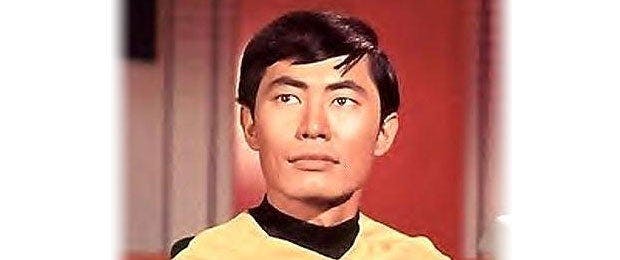Published Aug 2, 2010
Exclusive Interview: George Takei (Part One)
Exclusive Interview: George Takei (Part One)

George Takei is ready and eager to talk, and anyone who’s ever had the pleasure of chatting with the man knows what that means: Pull up a chair, get comfortable and settle in for a good, old-fashioned conversation, because 15-second sound bites simply are not the Star Trek legend’s thing. StarTrek.com caught up with Takei recently and over the course of an hour-long conversation, the actor filled us in on his current endeavors, including a film with Tom Hanks, a Broadway-bound play he hopes to star in, and the ongoing campaign designed to land him a Saturday Night Live hosting gig. He also talked about coming out as a gay man, looked back at Star Trek and contemplated what Sulu might be doing since moviegoers last glimpsed him in action. In order to provide you with the full interview we’ve split it in two. What follows is part one, and visit StarTrek.com again tomorrow for the second half.
Let’s talk about Star Trek. We’re now at nearly 45 years and counting. What runs through your mind when you contemplate how long it’s been since you first stepped on a set to play Sulu?
I think about how so much has happened to me, to the world, to all of us. We’ve lost people like Gene (Roddenberry) and Jimmy (Doohan) and Majel (Barrett Roddenberry) and De (Kelley). When I was doing Larry Crowne some of the crew members came up to me and said they knew Fred Phillips, the makeup guy (who worked with Takei on TOS and The Motion Picture, and also on Deep Space Nine). So I keep getting reminded of people that we worked so closely with for a brief three years who are now gone.
But the amazing thing is that we are living in that science fiction world that was so fantastical back in 1966. Our cell phones, our computers, the space shuttle, the space station; there are so many things that exist today that were fantasy when we started the show. And look at the space station. It’s made up of people that reflect the diversity of this planet. In fact, what was political fantasy, absolutely pure political fantasy – Russians and Americans working together – is a reality now. Back in the 1960s we were in a Cold War and it would have been totally unthinkable. But Gene thought it and his vision is now being realized in fact. So we are living in that science fiction world of four decades, four and a half decades ago.
Tell us a Star Trek story you’ve never told anyone, or at least one you’ve rarely ever told.
I don’t think there is one, to be honest. Between my book (To the Stars: The Autobiography of George Takei), so many convention appearances and all the interviews I’ve done, I don’t think there’s a shred of a Star Trek story that has not been unearthed.
OK, but we’re guessing you have an answer to this one: What’s the greatest lost opportunity when it comes to Sulu?
From the very beginning I thought it was a breakthrough opportunity. Just to be able to play a member of the leadership team, without an accent, was hugely important. So many Asians back then were, first of all, stereotypes and spoke with a heavy accent. So I thought I could parlay that into something substantial for the character. I suggested Sulu having a family that he connects with. I suggested a lot of ideas to develop Sulu that never really happened. It was only after I turned down a role in Star Trek 7 (Generations) that they gave all my lines to a relative that I had lobbied for, my daughter. When the series ended and the films began I was lobbying for parents, brothers, sisters, lovers, maybe a wife, all of that, but none of it ever happened. I wanted to see Sulu more dimension-ed, but that’s not news, I’m sure.
What do you think Sulu is doing now? If we go by canon, we saw him in a captain’s chair in both Star Trek VI: The Undiscovered Country and on Voyager. If we don’t go by canon, we saw him (played by you) in the New Voyages fan film “World Enough and Time”…
Right, but he came back in “World Enough and Time.” He was back on the Enterprise with a whole different life experience. I liked that because that’s the kind of thing that happens to people in the military. A young man from Kansas might be coming back from overseas with an Arab wife, an Iraqi or Afghan wife. After WWII there were so many Japanese war brides who came back and lived in places like Georgia. I remember filming The Green Berets in Georgia, and all the extras were Japanese war brides of G.I.s who met them in Japan. So for Sulu to have that experience he had in “World Enough and Time” was in keeping with the kind of global or intergalactic lives that the people of the Enterprise lived. So he would bring that enrichment of his life to his service with Starfleet. And I think what might still be interesting is to see what he’d do after leaving Starfleet. Certainly, having lived the life he had, he wouldn’t go into some kind of relaxed retirement. He would keep on going.

